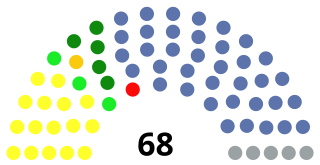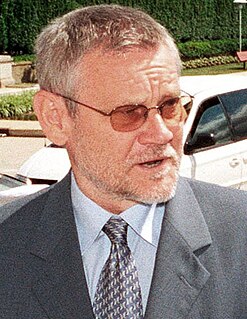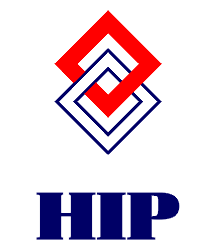
The President of Croatia, officially styled the President of the Republic, is the head of state, commander in-chief of the military and chief representative of the Republic of Croatia both within the country and abroad. The President is the holder of the highest office within the Croatia's order of precedence, however, the president is not the head of the executive branch as Croatia has a parliamentary system in which the holder of the post of Prime Minister is the most powerful person within the country's constitutional framework and within everyday's politics.

Presidential elections were held in Croatia on 15 June 1997. They were the second presidential elections held since independence in 1991. The result was a victory for incumbent president Franjo Tuđman, the leader of the Croatian Democratic Union party (HDZ), who received 61.40% of the vote and was re-elected to a second five year term. As Tuđman received a majority of the valid votes cast on election day there was no need for a run-off. President Tuđman received a plurality of the votes in 20 of Croatia's 21 counties, while Vlado Gotovac did so in Istria County.

Presidential elections were held in Croatia in January 2000, the third since independence in 1991. They were also the first early presidential elections, as they were held due to the death of incumbent president Franjo Tuđman on 10 December 1999, as well as being the last elections held under the semi-presidential system of government, by which the President was the most powerful official in the government structure and could appoint and dismiss the Prime Minister and their cabinet.

The Croatian Democratic Union is a conservative political party and the main centre-right political party in Croatia. It is one of the two major contemporary political parties in Croatia, along with the centre-left Social Democratic Party (SDP). It is currently the largest party in the Sabor with 55 seats. The HDZ ruled Croatia from 1990 after the country gained independence from Yugoslavia until 2000 and, in coalition with junior partners, from 2003 to 2011, and since 2016. The party is a member of the European People's Party (EPP). HDZ's leader, Andrej Plenković, is the current Prime Minister of Croatia, having taken office following the 2016 Parliamentary Election.
Regular elections in Croatia are mandated by the Constitution and legislation enacted by Parliament. The presidency, Parliament, county prefects and assemblies, city and town mayors, and city and municipal councils are all elective offices. Since 1990, five presidential elections have been held. During the same period, nine parliamentary elections were also held. In addition, there were six nationwide local elections. Croatia has held two elections to elect 11 members of the European Parliament following its accession to the EU on 1 July 2013.

Parliamentary elections were held in the Socialist Republic of Croatia between 22 and 23 April 1990; the second round of voting occurred on 6–7 May. These were the first free, multi-party elections held in Croatia since 1938, and the first such elections for the Croatian Parliament since 1913. Voters elected candidates for 356 seats in the tri-cameral parliament; the turnout in the first round ranged between 76.56% and 84.54% for various parliamentary chambers. In the second round, the turnout was 74.82%. The Croatian Democratic Union (HDZ) won 205 seats, ousted the League of Communists of Croatia – Party of Democratic Reform (SKH-SDP) from power and ended 45 years of communist rule in Croatia. The new parliament convened for the first time on 30 May, elected Franjo Tuđman as President of the Croatian Presidency and soon after renamed the office to President of Croatia.

Parliamentary elections were held alongside presidential elections in Croatia on 2 August 1992, the first after independence and under the new constitution. All 138 seats in the Chamber of Representatives were up for election. The result was a victory for the Croatian Democratic Union, which won an absolute majority of 85 seats. Voter turnout was 75.6%.

Chamber of Counties elections were held for the first time in Croatia on 7 February 1993. The result was a victory for the Croatian Democratic Union, which won 37 of the 63 elected seats.

Parliamentary elections were held in Croatia on 29 October 1995 to elect the 127 members of the Chamber of Representatives. The result was a victory for the Croatian Democratic Union, which won 75 seats, an absolute majority. Therefore, this was the last election to date in which a single party won enough seats to govern alone, without the need for parliamentary support from pre-election or post-election coalition partners. Voter turnout was 68.8%.
Elections for the Second Assembly of the Chamber of Counties of the Croatian Parliament were held in Croatia on 13 April 1997. The result was a victory for the Croatian Democratic Union, which won 40 of the 63 elected seats. This was the last election for the Chamber of Counties, which was abolished through a constitutional amendment on 29 March 2001. UNTAES facilitated the conduct of elections in the United Nations protectorate region of Eastern Slavonia, Baranja and Western Syrmia.

Josip Manolić is a Croatian politician and former high-ranking official of the State Security Administration who was the Prime Minister of Croatia from 24 August 1990 to 17 July 1991. Croatia formally declared independence during his term on 25 June 1991. Having taken office as Prime Minister at the age of 70 and having left the office at the age of 71, he is the oldest person to date to have served as Prime Minister of Croatia. Manolić is also the oldest currently living former prime minister at the age of 98 years, 363 days and the longest-lived holder of the office. Following his brief term as Prime Minister, he served as the first Speaker of the Chamber of Counties, the upper house of the Croatian Parliament, from 1993 until 1994.

Dražen Budiša is a retired Croatian politician who used to be leading opposition figure in the 1990s and a two-time presidential candidate. As leader of the Croatian Social Liberal Party through the 1990s he remains to date the only Leader of the Opposition not to have been from either the Croatian Democratic Union or Social Democratic Party.

Parliamentary elections for the Chamber of Representatives of the Croatian Parliament were held on 3 January 2000. These were the first elections to be held after the expiration of a full 4-year term of the previous Chamber of Representatives.

Croatian True Revival was a right-wing political party in Croatia. Founded in 2002 as a splinter party of the centre-right Croatian Democratic Union (HDZ), HIP never won any seats in elections, although it briefly had three MPs in the Croatian Parliament in late 2003. Following poor results in the November 2003 parliamentary election, the party fell into obscurity before being formally dissolved in August 2011.
Croatian Independent Democrats was a political party in Croatia.
The Zagreb crisis is the political crisis that followed the elections for the City of Zagreb local assembly held in October 1995. During the crisis the winning parties were unable to appoint their candidate for Mayor of Zagreb because the President of Croatia, Franjo Tuđman, refused to provide the formal confirmation of their decision.
Miroslav Tuđman is a Croatian scientist and politician, the son and eldest child of the first President of Croatia Franjo Tuđman and his wife, Ankica Tuđman.
General elections were held in Bosnia and Herzegovina on 18 November 1990, with a second round of voting in the House of Peoples elections on 2 December. These were the final general elections to be held in Bosnia and Herzegovina while it was still a constituent republic of the Socialist Federal Republic of Yugoslavia.















